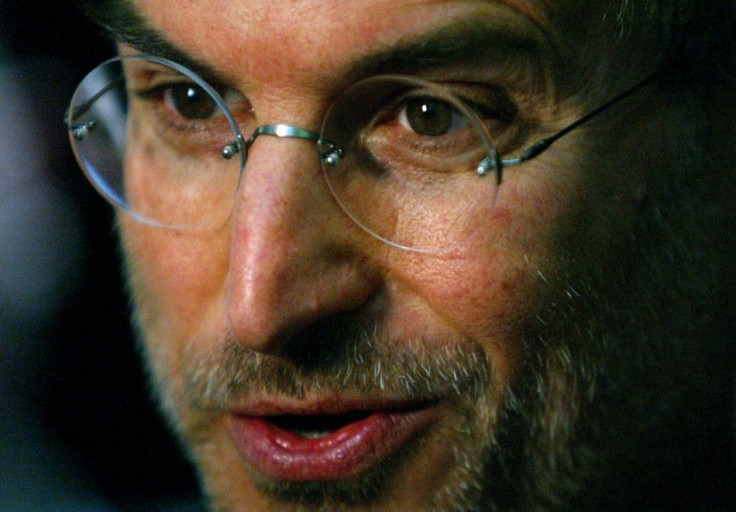Steve Jobs' Biography: Top Five Secrets it Could Reveal

Steve Jobs' posthumously released biography, now available for pre-order has become a chartbuster on online bookstores. Author Walter Isaacson spent over two years conducting forty exclusive and unprecedented interviews with Jobs and over hundred of his family members, friends, adversaries, competitors and colleagues for the book which chronicles rollercoaster life and searingly intense personality of a creative entrepreneur.
Jobs asked for no control over what was written nor even the right to read it before it was published, the biography description says. His tale is thus both instructive and cautionary, filled with lessons about innovation, character, leadership, and values.
Being a closed-off entrepreneur, Jobs' biography could shed light into his lesser-known personal life, as much as it might deal with what goes inside the Apple headquarters in creating products that made Jobs proud during his keynote address introducing them.
What exactly can you expect from the biography of the visionary CEO?
Future of his Fortune
Jobs' estimated net worth was $7 billion, including his seven per cent stake in Walt Disney Co., acquired from selling Pixar. Unlike his contemporaries, Bill Gates and Warren Buffett, Jobs' lack of efforts in philanthropy were met with criticism, even though the Apple mastermind preferred to keep details and the future of his fortune, private. Speculation has been rife since his death that at least a portion of his vast fortune may go to cancer research or hospitals.
However, Google's Chairman, Eric Schmidt, has hinted that Jobs had laid detailed plans for his fortune, which could possibly be revealed in his upcoming biography.
This is a man whose impact is equal to any global leader, Schmidt told the New York Times. He very much wanted to live and have a third act beyond Apple's success.
As for whether that impact may grow through the wealth he leaves behind, Schmidt said, it is not for me to characterize what will happen with Jobs' fortune. All of that will unfold, he added. I will say that he was a very thoughtful person, and he cared a lot about the world.
Failures and Unflattering Details
This is a man who made things work, but there would have been instances when things didn't quite work for him.
He put nothing off limits, the description of the biography says. He encouraged the people he knew to speak honestly even foes, former girlfriends, and colleagues he had once fired or infuriated.
Jobs often got things done in ways that infuriated people around him. His friends, foes, and colleagues provide an unvarnished view of the passions, perfectionism, obsessions, artistry, devilry, and compulsion for control that shaped his approach to business and the innovative products that resulted.
He was not a model boss or human being, tidily packaged for emulation. Driven by demons, he could drive those around him to fury and despair.
Why Did he Sell Pixar?
Pixar Animation Studios saw years of unprofitability after Jobs bought it in 1986 from Lucasfilm's computer graphics division. However, after contracting with Disney to produce animation films, Pixar produced box-office hits which were critically acclaimed. In early 2004, Jobs announced that Pixar would seek a new partner, as he had failed to negotiate a new partnership, mainly due to differences between him and then Disney chief Michael Eisner. But a top level change in Disney, with Bob Iger replacing Eisner, resulted in Disney agreeing to purchase Pixar in an all-stock transaction worth $7.4 billion, and Jobs becoming Disney's largest single shareholder with approximately seven per cent of the company's stock.
But why exactly did he do that, especially when the successful Pixar could have found a different partner to do business? Or did he think the merger deal was too good to lose? The biography may have the answers.
Relationship with Estranged Father and Love Child
Jobs' first daughter was Lisa Brennan-Jobs, born in 1978 from his relationship with Bay Area painter Chrisann Brennan. She briefly raised their daughter on welfare when Jobs denied paternity by claiming he was sterile; he later acknowledged Lisa as his daughter.
I've done a lot of things I'm not proud of, such as getting my girlfriend pregnant when I was 23 and the way I handled that, Jobs said in his biography description. But I don't have any skeletons in my closet that can't be allowed out.
Jobs had never met his biological father, Abdulfattah John Jandali, 80, a Syrian-American Muslim and ex-political science professor, even after the latter's public request for a union. Jandali and Joanne Schieble, an American graduate student, were unmarried when Jobs was born in 1955. The baby was adopted by Paul and Clara Jobs of Mountain View, Calif., who named him Steven Paul.
Hints at Future Products
It is being speculated that Jobs' death may have a negative impact on Apple. But according to reports, Jobs had been working for over an year on future Apple products, which included preparing blueprints for next generation iPads, iPods, iPhones and MacBooks. Jobs was also working on the plan approval of spaceship-style Apple headquarters in California, big enough to accommodate 12,000 employees.
While one cannot expect what exactly the product designs are going to be, Jobs' biography will definitely provide insights into what Apple's future biggies will be.
© Copyright IBTimes 2024. All rights reserved.






















